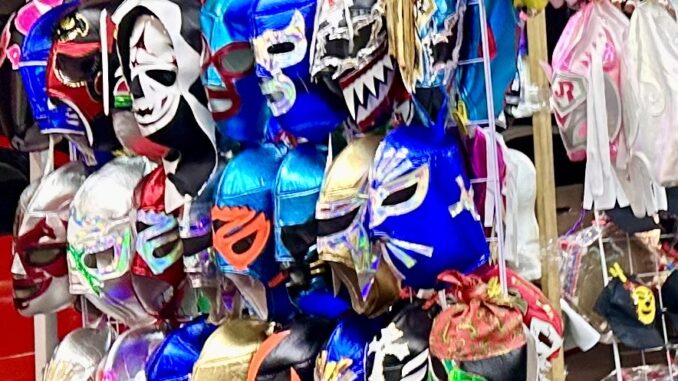
Mexican Wrestling Culture (Lucha Libre)
If you have walked on 5th Avenue in Playa Del Carmen, you have seen the brightly colored wrestling masks. These are part of lucha libre — Mexico’s uniquely flamboyant form of professional wrestling. It is more than just sport or entertainment; it’s a cultural phenomenon. With its masked heroes, colorful costumes, and dramatic storylines, lucha libre has captured the hearts of millions across generations. To understand its lasting popularity, it’s essential to explore its roots, evolution, and place in Mexican society.
See the end of the article to see where you can go and see this in the Riviera Maya.
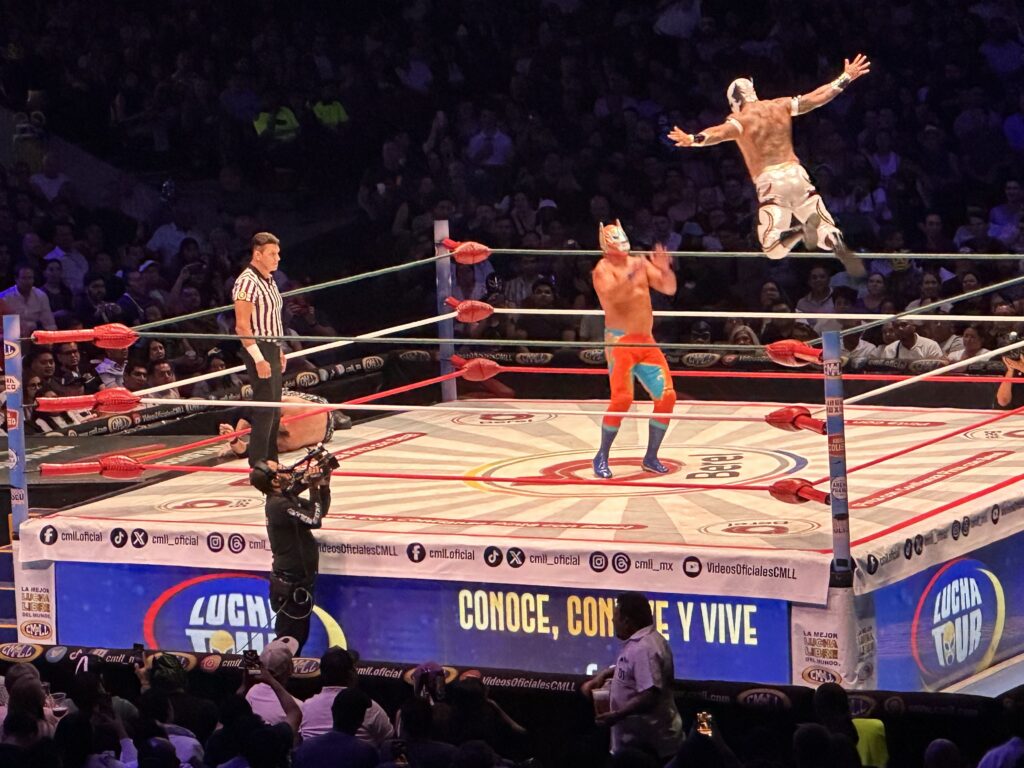
A Brief History of Mexican Wrestling
Lucha libre, meaning “free fight,” arrived in Mexico in the early 20th century, inspired by American and European wrestling styles. It gained traction in the 1930s and 1940s, thanks largely to Salvador Lutteroth, a former police officer turned entrepreneur who is often credited as the “father of lucha libre.”
In 1933, Lutteroth founded Empresa Mexicana de Lucha Libre (EMLL), now known as Consejo Mundial de Lucha Libre (CMLL). His vision brought organized wrestling to the Mexican public and introduced the now-iconic masked wrestler, a symbol that would forever distinguish Mexican lucha libre from other wrestling traditions.
The Rise of the Masked Hero
Masks are central to the mythos of lucha libre. Inspired by Aztec and Mayan warriors, masks represent not only anonymity but also transformation. A wrestler dons a mask to become a larger-than-life figure — a superhero, a villain, a warrior.
Perhaps no luchador (wrestler) better exemplifies this than El Santo. Debuting in the 1940s, El Santo wore a simple silver mask and quickly became a cultural icon, not only in the ring but also on the big screen, starring in over 50 films. His character symbolized justice and strength, and his commitment to never removing his mask in public only deepened the mystique.
Other legendary masked figures like Blue Demon, Mil Máscaras, and later Rey Mysterio, continued this tradition, building on the allure of the masked luchador and embedding it into Mexican identity.
Cultural Significance and Symbolism
Lucha libre is deeply woven into Mexican culture. Beyond the entertainment, it serves as a metaphor for social struggles — rich vs. poor, justice vs. corruption, tradition vs. modernity. The battle between sides can often be seen as an allegory for the political and societal tensions that Mexicans face in daily life.
The mask, too, holds immense cultural weight. It’s a sacred object, symbolizing identity and honor. Losing one’s mask in a match — known as a Lucha de Apuestas (bet match) — is a devastating defeat, often more significant than losing a title. Such matches are the most emotional and dramatic events in lucha libre.
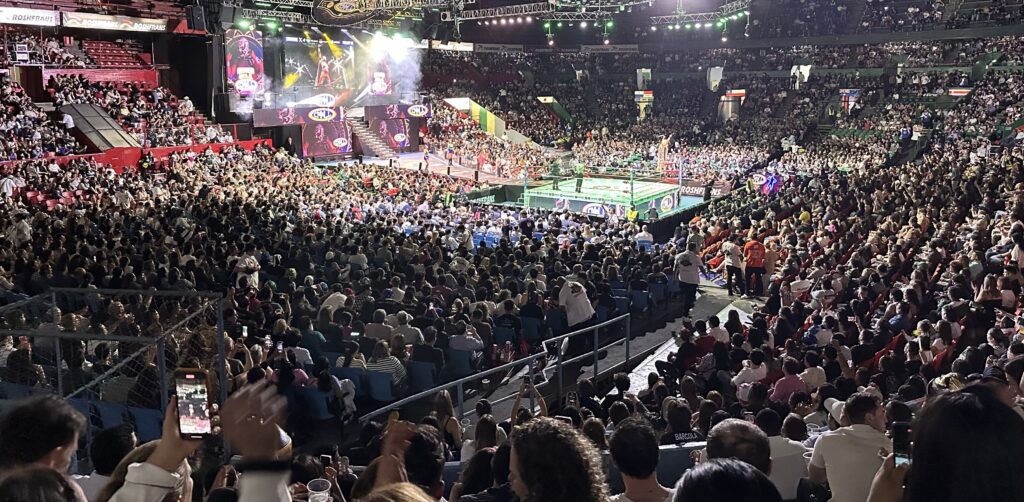
Modern Cultural Phenomenon
In recent decades, lucha libre has gone global. Stars like Rey Mysterio and Eddie Guerrero brought lucha libre-style wrestling to the United States through organizations like WWE, introducing millions of new fans to the art form.
Meanwhile, the imagery of lucha libre — masks, characters, and slogans — appears on everything from fashion and art to street murals and museum exhibits. It’s a living, breathing expression of Mexican identity.
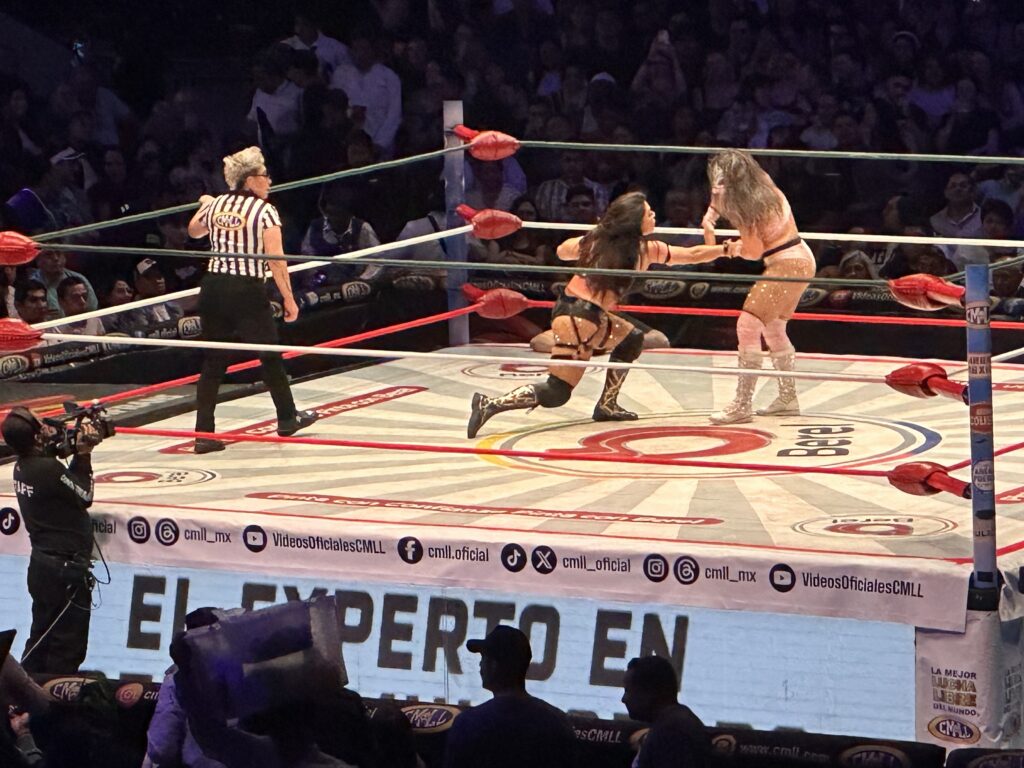
Go see a wrestling show in Cozumel
Although Mexico City is the epicenter for lucha libre wrestling, you can experience it locally on Cozumel.
-
Go beyond being a spectator and meet the performers with a backstage pass
-
Receive a photo card signed by the fighters as a souvenir of the experience
-
Kick off the party with a welcome tequila upon arrival at the venue
-
Your Barriecito entrance fee is included for a seamless experience
Note: When you click the link to purchase tickets you will have a page with all the details for this experience.
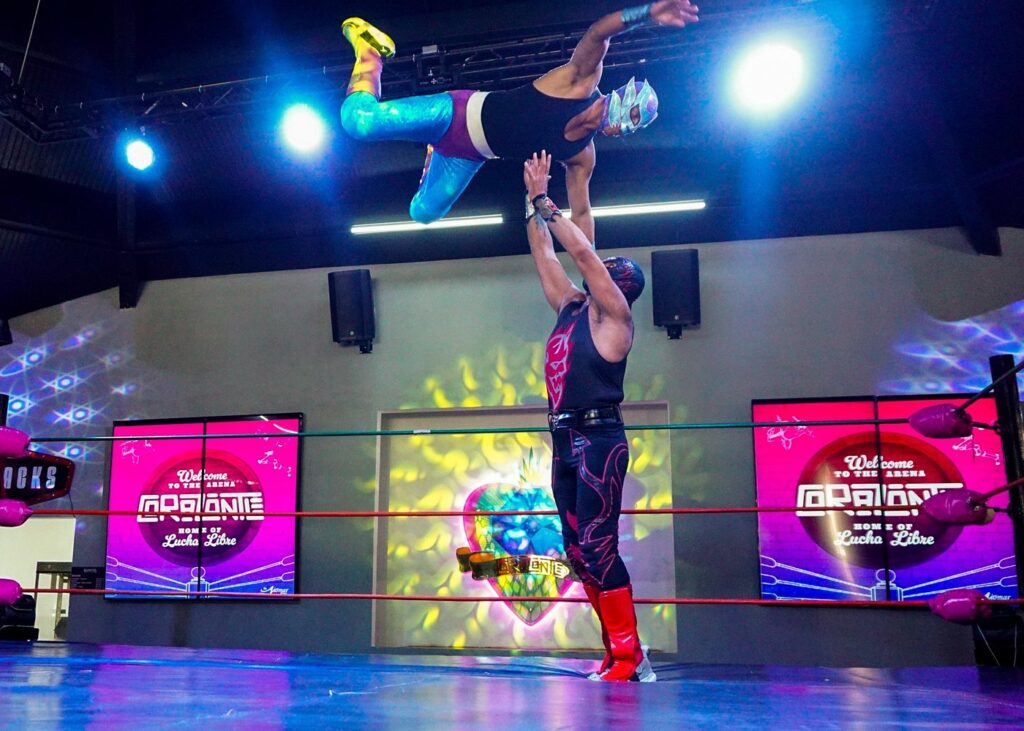



Be the first to comment